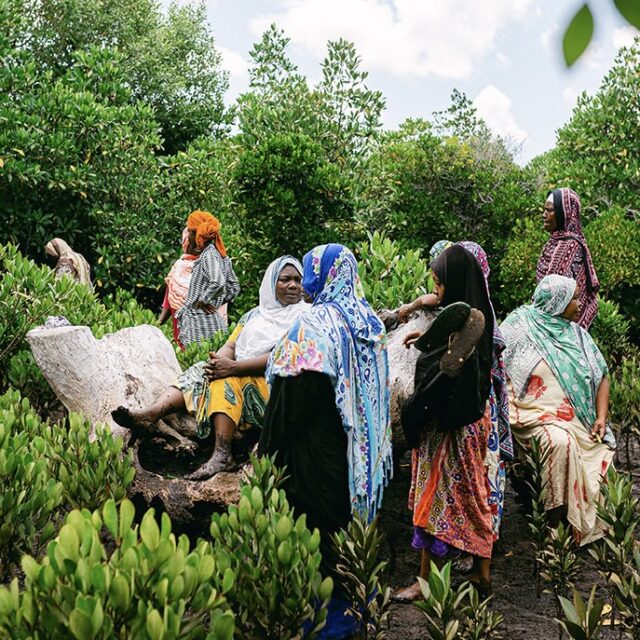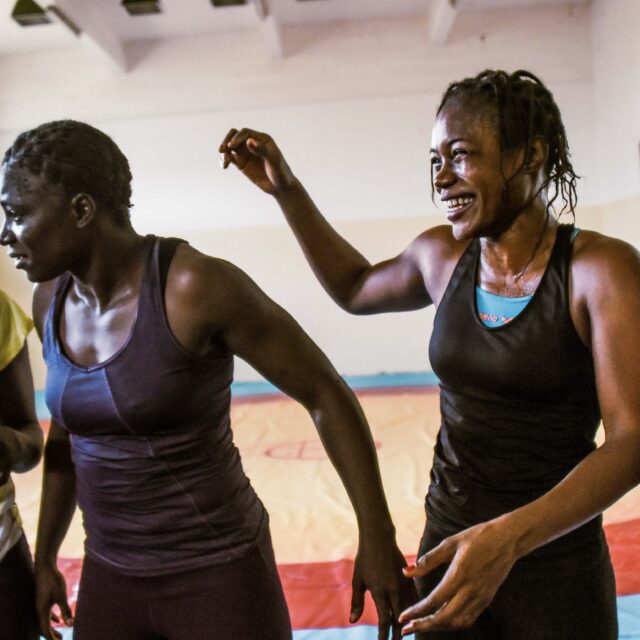This month, we’ve rounded up some promising stories from across Africa — from an unexpected publicity boost for Zimbabwe’s universities, to praise for WHO’s Africa regional director as “an anchor in the gathering storm.” We also have some good news on debt suspension and an update on the Ebola outbreak in the Democratic Republic of Congo.
Proactive governments, crucial partnerships, and a fearless leader
COVID-19 will hit countries with vulnerable health systems hardest, and we’ve reported on the threats facing Africa in particular. But we want to share promising updates as well. First, in Rwanda, there have so far been fewer than 200 cases of COVID-19 registered. While actual counts could be higher if more testing were available, Rwanda’s former health minister is applauding fast government action in preventing a higher spread. Watch more on Devex. Meanwhile in Zimbabwe, universities are enjoying an unexpected publicity boost. Schools have shifted gears and partnered with companies to produce face masks, hand sanitiser, and a prototype ventilator to prepare once the pandemic hits. Zimbabwe’s president called the partnership a “silver lining to the present global health crisis.” And earlier this month, the World Health Organization’s Regional Director for Africa, Dr Matshidiso Moeti, was commended for her leadership. She calmly updates WHO leadership on COVID-19 in Africa, switching seamlessly between English and French. Here’s a profile of why she’s “an anchor in the gathering storm.”
UN launches a new fund to help farmers
This week, the United Nations launched a new fund to help farmers in low-income nations, with the help of British actor Idris Elba and his wife, Sabrina Dhowre Elba. The couple — who themselves had COVID-19 — are calling on high-income economies to provide aid to prevent the “needless hunger and suffering” that will result from the pandemic. A recent report found that 135 million people in 55 countries and territories were suffering from acute food insecurity. But that number could double because of the pandemic.
The G20 delivers crucial debt relief for vulnerable countries
The G20 has agreed to suspend debt repayments for the poorest countries that request relief for the rest of 2020. They estimate this could free up to US$12 billion in government debt payments. This decision follows calls from the ONE Campaign and 200 other organisations to support the world’s most vulnerable nations during the COVID-19 pandemic and help them prioritise their healthcare systems and response plans. While this is an important first step, much more is needed to protect vulnerable nations from the economic impact of COVID-19. Watch this video from our CEO and experts here at ONE to find out more.
Fears of a measles resurgence
The United Nations is warning of the potential for a resurgence in measles cases during the COVID-19 pandemic. UNICEF says 117 million children in 37 countries may not get immunised on time because of delays in vaccination programmes. Maintaining regular immunisation is crucial during pandemics. Vaccinations are one of the single most important public health interventions in protecting the health and welfare of the country’s population, and their suspension or delay could have damaging long-term consequences for public health.
An update on the Ebola outbreak in DRC
In other health news, earlier this month, the World Health Organization came close to calling the Ebola outbreak in the Democratic Republic of Congo over. But after 52 days without a case, a new case was reported on 10 April, and the WHO said it’s preparing for more potential cases, alongside preparations for COVID-19 in the country. Despite the setback, it still represents a dramatic decrease in cases since the outbreak began in August 2018. Catch up on the full timeline of the outbreak.
Stories of solidarity and hope
And to end on a note of positivity, as part of our ONE World Campaign, we asked our supporters to send in their stories of solidarity and hope. The response was incredible: with more than 600 people submitting their stories from across the world. One of the most inspirational quotes comes from Odigwe Gloria in Nigeria: “ In the face of a common, global enemy, artificial structures erected to differentiate us — race, color, language and culture — have become insignificant because we can only defeat this pandemic if we act and share, selflessly.” We’d love to hear from you, too. Send us your stories here.



